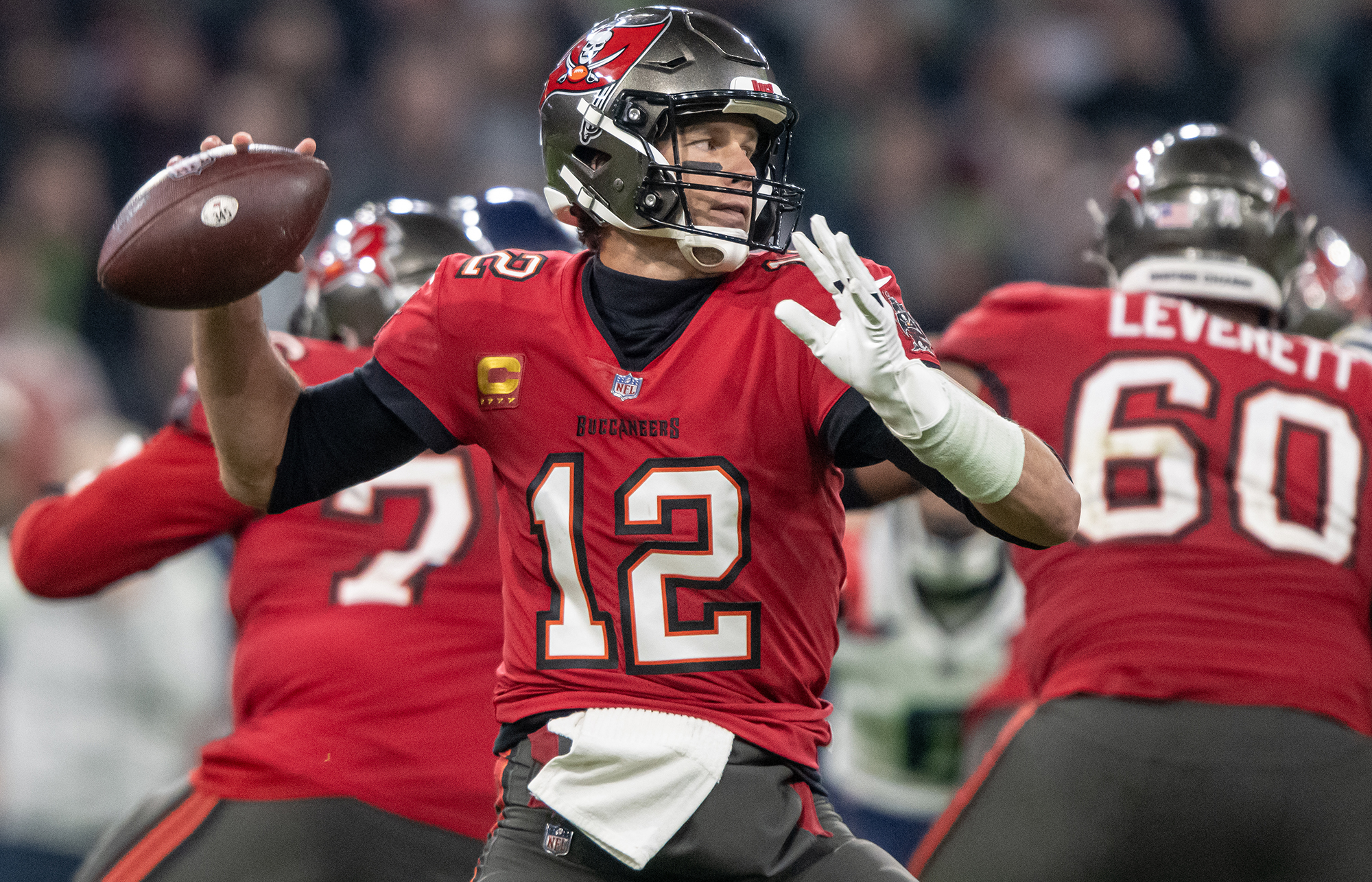You are probably not following this enormously important saga of the modern world, but I do think it matters that everybody should know that American football star Tom Brady and international Brazilian model Gisele Bündchen have divorced. One is not supposed to notice such things these days, but it’s hard not to observe that Tom and Gisele make a fairly respectably good-looking couple.
Brady, in case you don’t know, is beyond a phenomenon in his sport. He holds nearly every major quarterbacking record, including most career passing yards, completions, touchdown passes and games started.
He is extraordinary for many different reasons but perhaps most notably for his longevity. He is the only quarterback to win a Super Bowl in three separate decades, and he became the oldest National Football League MVP (Most Valuable Player) at the age of 40, the oldest Super Bowl MVP at age 43, and the oldest quarterback selected to the Pro Bowl at age 44.
But there is a problem. He played for Tampa Bay for the 2022/23 season, and it was a washout. The Buccaneers were division winners but lost more games than they won. At this point, it’s not clear whether he will play for the Bucs this year, or for anyone else for that matter. Brady is actually back from retirement, and it doesn’t take a physics degree to work out that Bündchen was rather upset about this decision, since she essentially gave up her sparkling modelling career to have kids with him.
Bündchen has spoken with deep passion about how difficult the period has been, but how she values the time they had together and how they are going to work hard to maintain their deep and heartfelt friendship. She also released a sexy dance video of herself practising for Carnival in her native Brazil. Nice.
The decline and fall of one of the most fabulous pairings of our age poses perhaps one of the most difficult questions of any age: What do you do when you have absolutely everything and you reach the absolute pinnacle? It appears, there is really only one option; do crazy, self-harming stuff.
Visit Daily Maverick's home page for more news, analysis and investigations
This, naturally, brings us to Vodafone. Never has a British company bestrode the planet Earth to the same extent, with the possible exception of the British East India Company in the 1600s. Or the British Empire itself.
Reading Vodafone’s list of subsidiaries and partners around the world begs the question, why don’t we just tally where they are not? In Europe alone, Vodafone has majority stakes in cell networks in Albania, the Czech Republic, Germany, Greece, Hungary, Ireland, Italy, the Netherlands, Portugal, Romania, Spain, Turkey and the United Kingdom. That’s not including its partnerships with the 23 other European countries.
The company has about 300 million subscribers, the second largest in the industry after China Telkom. It was for years the largest company on the London Stock Exchange. It is, in short, an absolutely mammoth beast. And of course, it owns about 65% of locally listed Vodacom.
But here is the funny thing: shareholders have completely fallen out of love with the company. For the past nine years, Vodafone has been slowly leaking support on the exchange and, recently, it lost its CEO Nick Read.
Looking at the numbers, you can see why. Despite having the world’s second-largest customer base, Vodafone has a net income of about $2.2-billion off revenue of just under $50-billion, which makes it the sixth-largest cell company by revenue. The seventh largest, the French group Orange, which has fewer customers (about 150 million), is more profitable off a lower revenue.
The real shocker is the US company Verizon, the world’s third-largest cell company, which has a market capitalisation of about $278-billion compared with Vodafone’s $46-billion. The sting is that Vodafone used to own just under half of Verizon, which it sold in a huff in 2013 for $130-billion after it struggled to take control of the US company. In the year 2000, Vodafone looked like it was going to take over the world: its share price was just above £7. It’s now hovering just above £1.
So, of course, the buzzards are now circling. Billionaire John Malone’s Liberty Global has just disclosed a 4.9% stake, and a group of other big-name investors, like French billionaire Xavier Niel, have also invested. And they want action. Unfortunately, Vodafone is missing a CEO; Margherita Della Valle has been appointed interim GCE. That is, you know, not ideal.
State-backed Emirates Telecommunications, formerly known as Etisalat and now called e&, is also an investor in Vodafone and is also licking its lips. e& has about a 10% stake in the company and is pushing for a sale of Vodacom to it, partly because the geographical overlay between the two companies means a joint company would cover almost the entire African continent.
What this is all leading to is that SA’s Vodacom shareholders may have to make a big decision pretty soon: stay with the declining empire or go with the Middle Eastern upstart?
But the biggest problem is the Tom Brady issue. There are about 5 billion active cellphones at the moment out of a global population of 8 billion. That means basically every adult on Earth has one. Great for us, great for communication, but for cell companies, significantly improving revenue when you are on top of the castle already is now madly difficult.
Cellphones have conquered the world. There is only one option left: do crazy, self-harming stuff. DM/BM





